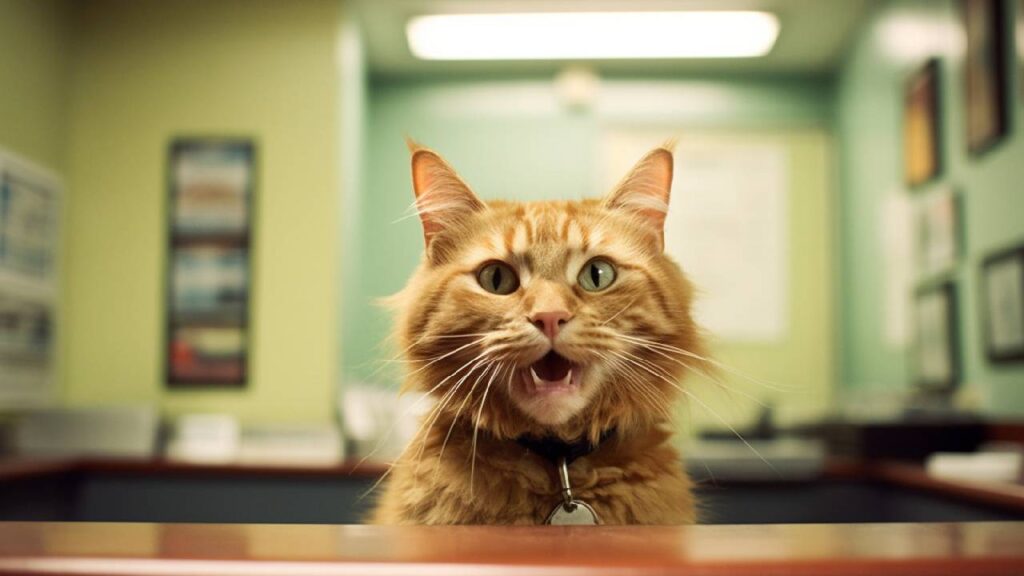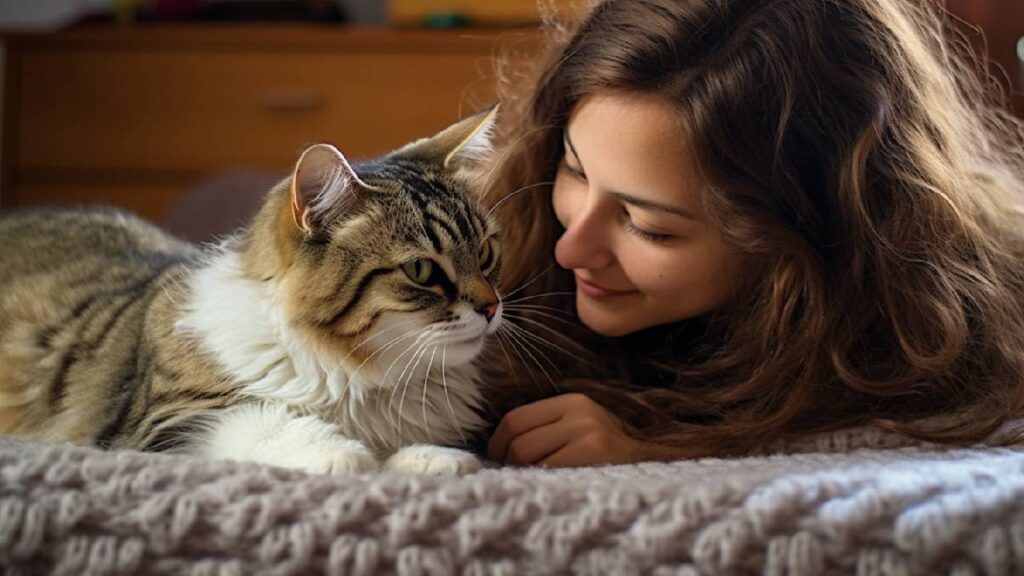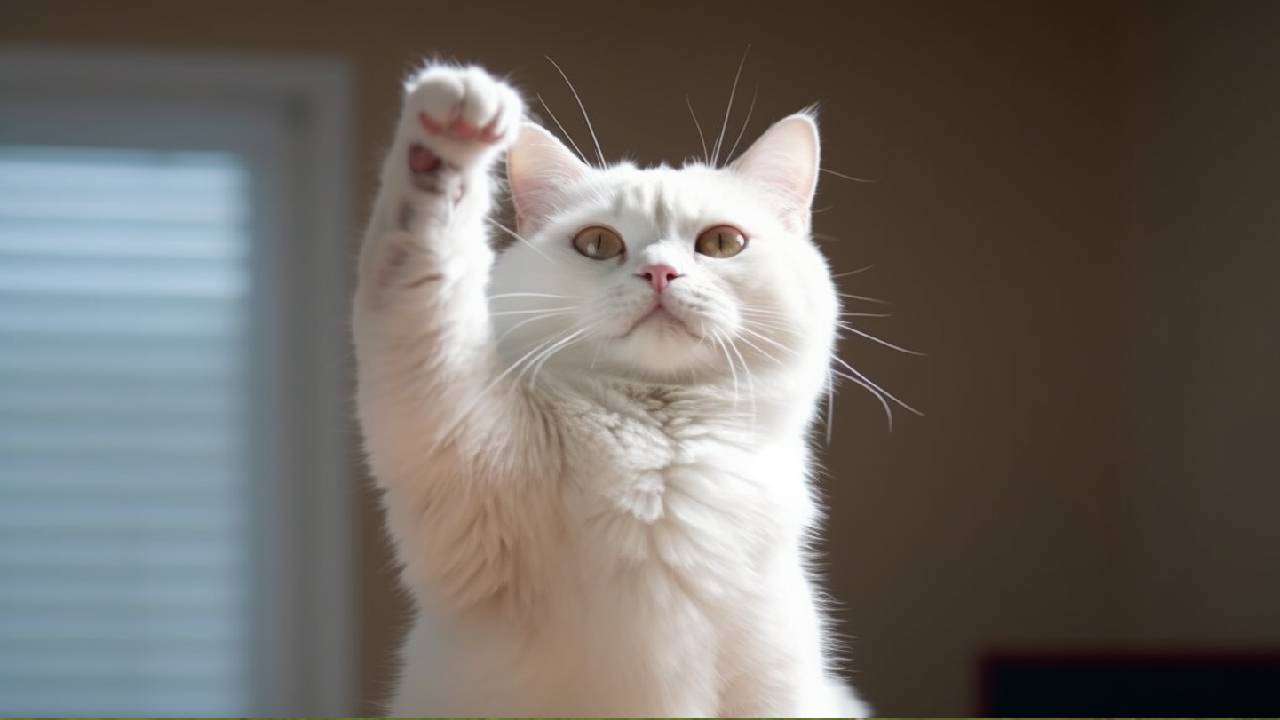Cats are known for their grace and poise, but sometimes even the most elegant feline friends exhibit unexpected behavior. One such behavior that can raise concern among cat owners is shaking.
If you’ve ever wondered, “Why is my cat shaking?” you’re not alone. Shivering or trembling in cats is a phenomenon that can have various underlying causes, some of which are harmless, while others may signal a need for immediate attention.
So, let’s discover the truth behind your cat’s shivering and how you can be the caring guardian your feline friend deserves.
Common Reasons Your Cat May Be Shaking
There are common triggers that can set off shivers in cats. Understanding these reasons can provide valuable insights into your cat’s well-being and help you decipher the messages they’re sending.
- Fear or Nervousness
Cats are sensitive creatures, and they can shake when they’re frightened or nervous. This might occur when they’re exposed to loud noises, unfamiliar environments, or encounters with new people or animals. Fear-induced shaking is often accompanied by other signs of anxiety, such as flattened ears, dilated pupils, and a tense posture.
- Medical Conditions
Underlying medical issues can also lead to shaking in cats. Hyperthyroidism, epilepsy, or low blood sugar (hypoglycemia) can cause trembling episodes. Neurological disorders or injuries can also result in involuntary shaking. If you notice your cat shaking frequently or excessively, it’s essential to consult a veterinarian to rule out any medical causes.
- Pain or Discomfort
Cats may shake if they’re experiencing pain or discomfort. This could be due to injuries, arthritis, dental, or even digestive problems. Shaking might be their way of expressing discomfort, especially if they try to avoid pressure on a painful area.
- Poisoning or Toxicity
Ingesting toxic substances can lead to various symptoms in cats, including shaking. Certain plants, human foods, medications, and household chemicals can harm cats and cause them to shake as a reaction to the toxins affecting their system.
- Old Age
As cats age, they may experience changes in their muscle tone and overall health. In some cases, shaking might be more noticeable in senior cats. While occasional trembling might be a part of the aging process, a veterinarian should evaluate any sudden or severe shaking.
- Vaccination or Medication
Some cats may experience mild shaking or shivering due to vaccinations or certain medications. This reaction is usually temporary and should subside within a short period.

Observing Your Cat’s Behavior: What to Look For
Deciphering the messages behind your cat’s shivering involves keenly observing their behavior. Cats communicate through body language, vocalizations, and subtle cues that provide insight into their emotional and physical state. Here are some behaviors to watch for when your cat is shaking:
Body Language
Observe their posture and movements. Are they hunched up or crouched down? Do they appear tense or restless? Changes in body language can hint at discomfort or anxiety.
Grooming Patterns
Cats are meticulous groomers. A sudden decrease in grooming or excessive grooming in localized areas might indicate pain or irritation.
Appetite Changes
A loss of appetite or eating reluctance could signify dental issues or other health concerns.
Interaction Patterns
Is your cat withdrawing from interactions, seeking solitude, or displaying heightened aggression? These changes can offer insights into their emotional state.
Vocalizations
Listen for changes in their vocalizations. Unusual meows, yowls, or hissing might accompany shivering and indicate distress.
Observation allows you to become an interpreter of your cat’s signals. Keep a mental note of these behaviors and any emerging patterns, as they can offer vital clues to the underlying causes of your cat’s shivering.

Home Remedies To Ease Your Cat’s Shivering
As a caring cat owner, you can create an environment of comfort and security for your shivering feline friend. While professional guidance is essential for diagnosing and treating underlying health concerns, you can play a significant role in soothing your cat’s physical and emotional discomfort.
Create a Cozy Environment
Cats thrive on comfort, and providing cozy spaces can go a long way in easing their shivers. Consider creating warm spots around the house with soft blankets or beds near radiators or heaters. Cozy hideaways can offer a retreat for your cat to relax and find solace.
Managing Stress and Anxiety
If stress or anxiety is suspected to trigger your cat’s shivering, addressing the root causes is essential. Creating a predictable routine and minimizing sudden changes can help alleviate their unease. You can also provide safe spaces where they can retreat when overwhelmed.
Temperature Control
Temperature changes can induce shivering. Ensuring a comfortable ambient temperature within your home is essential. During colder seasons, offer additional warmth with heated cat beds or cozy nooks where your cat can curl up.
Gentle Physical Comfort
Your presence can be a source of immense comfort to your cat. Spending quality time together, engaging in gentle play or soothing strokes, can create a sense of security and emotional well-being.
When to Seek Veterinary Attention
Shivering in cats can have various simple triggers, but certain situations warrant prompt veterinary attention. If your cat’s shivering is persistent, accompanied by other concerning behaviors, or if you notice any of the following signs, it’s recommended to consult a veterinarian:
- Lethargy: If your cat is unusually tired or lacks energy.
- Changes in Appetite: A sudden loss of appetite or drastic changes in eating habits.
- Vomiting or Diarrhea: Frequent vomiting or diarrhea can indicate health issues.
- Difficulty Breathing: Labored breathing or wheezing requires immediate attention.
- Disorientation or Stumbling: If your cat appears disoriented, unsteady, or unable to walk correctly.
- Visible Pain: If your cat displays signs of pain, such as crying out or flinching when touched.
A veterinary consultation provides professional diagnosis and treatment peace of mind for you, and comfort for your cat. Your veterinarian can conduct thorough examinations, recommend tests if necessary, and devise a tailored plan to address your cat’s specific needs.
Conclusion
Shivering is a multifaceted phenomenon in feline behavior that intertwines emotions, physiology, and communication.
As a cat owner, you are bestowed as an interpreter, observer, and caregiver. Recognizing subtle cues and listening to the messages conveyed through their actions can create an environment of comfort and understanding.
As you navigate this journey alongside your feline companion, remember that each cat’s experience is unique. Your attentiveness and compassion are pivotal in enhancing their quality of life. By offering warmth, creating a secure environment, and embracing the language of observation, you become a source of solace for your shivering friend.
So, the next time you ponder, “Why is my cat shaking?” you’ll be armed with insights that guide you on this path of understanding. With the threads of compassion, care, and knowledge, you weave a tapestry of comfort and connection that speaks volumes in the silent language of feline companionship.

FAQs
Are Some Cat Breeds More Prone To Shivering Than Others?
Any cat can experience shivering. However, some breeds might be more sensitive to changes in temperature or prone to stress-related behaviors. It’s essential to understand your cat’s unique tendencies and sensitivities.
Is It Possible For Cats To Shiver Due To Pain From Past Injuries?
Past injuries can contribute to a cat’s discomfort and lead to shivering, even if the injury occurred some time ago. Consulting a veterinarian can help determine the underlying cause if you suspect this might be the case.
Can A Cat’s Fur Color Affect Its Susceptibility To Shivering?
Fur color itself doesn’t directly influence shivering. However, cats with lighter fur may be more sensitive to temperature changes due to potentially less insulation. Monitoring their behavior in various conditions helps you understand their comfort level.
Can Shivering Be A Sign Of Dehydration In Cats?
Dehydration can cause shivering as the body attempts to regulate its temperature. Ensuring your cat has access to clean, fresh water is vital in preventing such scenarios.
Can Nutritional Deficiencies Contribute To Shivering Behavior In Cats?
Nutritional deficiencies impact a cat’s overall health, potentially affecting their body’s ability to regulate temperature. A well-balanced and appropriate diet tailored to your cat’s needs can play a role in preventing such issues.
Can Shivering Be Linked To Sudden Weight Loss In Cats?
Sudden weight loss can indicate underlying health issues that might contribute to shivering. Consult a veterinarian for a comprehensive health assessment if your cat experiences sudden weight changes.






my cat shakes sometimes too 😬